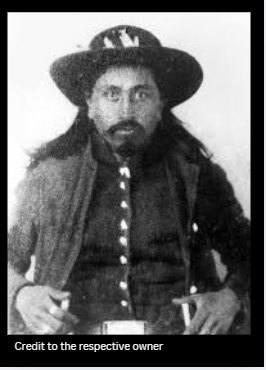In 1838, a seven-year-old boy named Ezekiel Proctor was forced to walk the Trail of Tears with thousands from Georgia into Indian Territory. That harsh journey left deep scars on him, shaping not only his resilience but also his unshakable pride in being Cherokee. While many bowed under loss and hardship, Zeke carried the weight of tradition and identity forward, refusing to let exile erase who he was.
As he grew older, Proctor became a living embodiment of Cherokee culture. He spoke the language, honored the customs, and kept alive the practices that held his people together. In a world that was changing rapidly around him, he became a symbol of continuity—a guardian of stories, memory, and belonging. His dedication provided strength not only for himself but for all who still held tight to their heritage.
Though he interacted with outsiders when necessary, he distrusted the settlers who pushed into Cherokee land. His perspective was shaped by grief, survival, and shared memory. Fierce, proud, and unyielding, Proctor embodied the spirit of a people determined not to disappear. His life is more than history—it’s a testament to survival, defiance, and Cherokee determination.
